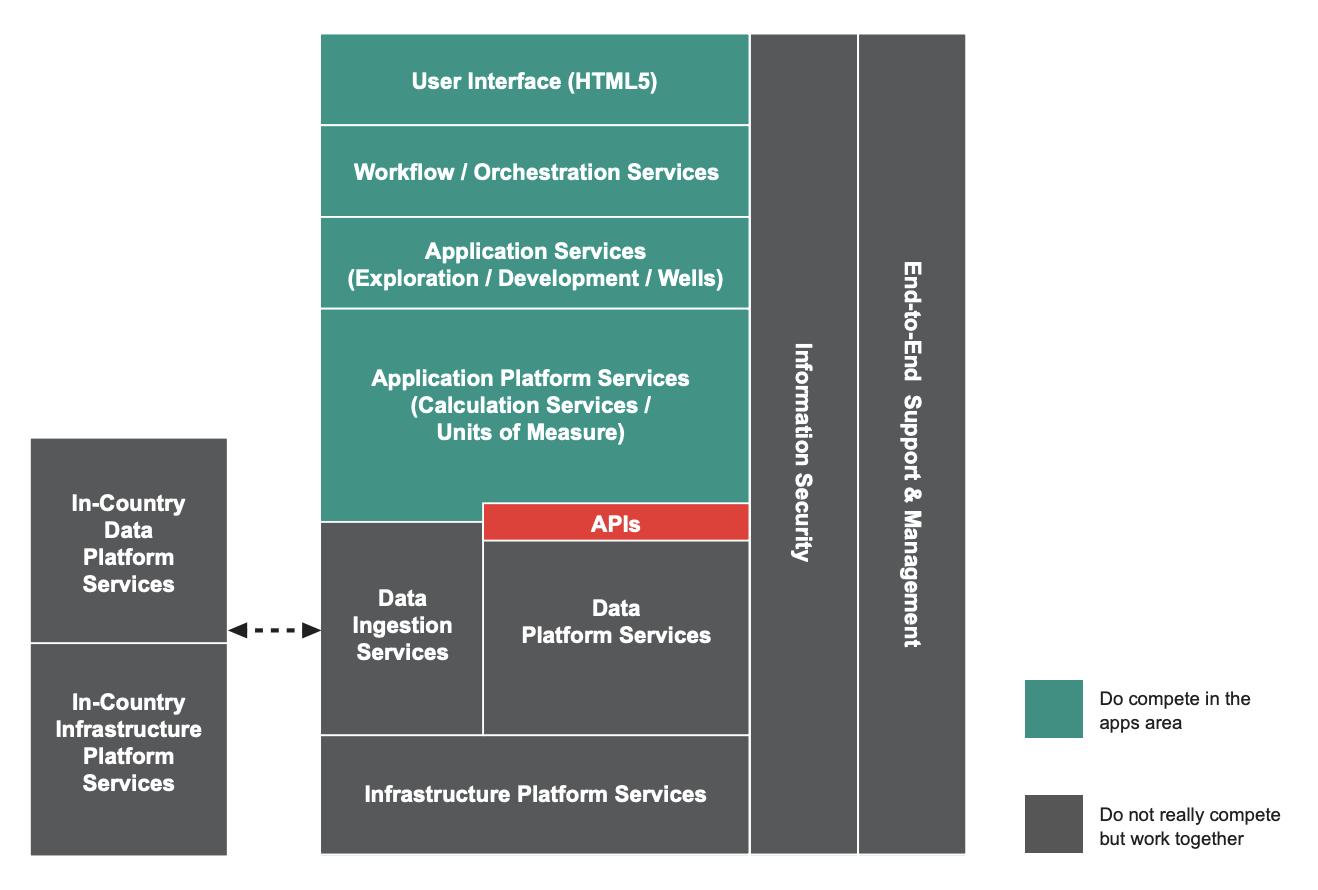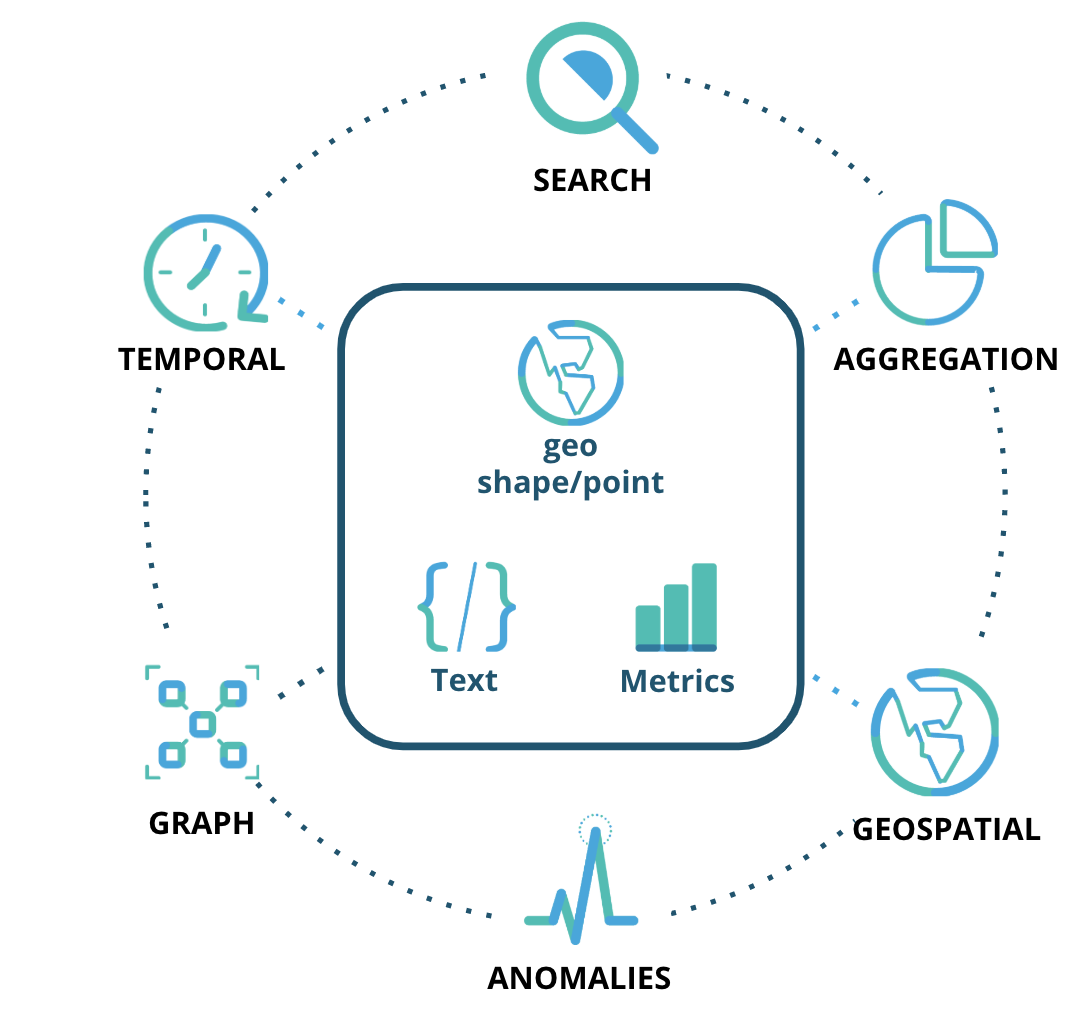Elastic has joined The Open Group Open Subsurface Data Universe™ (OSDU) Forum
We’re excited to share that Elastic is joining The Open Group Open Subsurface Data Universe™ (OSDU) Forum, an international group of oil and gas operators, technology providers, service companies, universities, and standard organizations that aims to build an open data platform for the oil and gas industry. Elastic is already being used widely within the energy industry, and Elasticsearch supports the analysis of a range of geospatial, full-text, and numeric data that is critical in this space.

What is The Open Group?
The Open Group is a global consortium that enables the achievement of business objectives through technology standards. Through their diverse membership of more than 700 organizations — which includes customers, systems and solutions suppliers, tool vendors, integrators, academics, and consultants across multiple industries — they are driving technology that furthers collaborative innovation.
What is the objective of the OSDU Forum?
The OSDU Forum aims to build a cloud-native subsurface and wells data platform for the oil and gas industry. The platform will reduce silos and put data at the center of the subsurface community. One of the core deliverables of this Forum is to publish a Reference Architecture for the platform. Initial implementations will be undertaken by Microsoft Azure, Google Cloud Platform, and Amazon Web Services, with others expected. At the time of writing, 17 operators are involved in the Forum alongside numerous technology providers. These operators will either implement their own versions of the data platform or leverage one of the cloud providers’ services.
Although these operators are direct competitors, they have decided that they don’t want to compete with each other on how to access and find data; they want to compete on creating insights and deriving decisions from the data. Therefore, the OSDU Forum was created to give them a forum to come together as an industry collective to solve this problem. This will give the industry the drive it needs to really capitalize on the art of the possible.

“If we want to develop this data platform ourselves, then we really need to ask ourselves whether that is the area where we really want to compete with ConocoPhillips, BP, and Chevron. We thought about that, and we came to the realization we do not want to compete with BP on how to access data. Nor do we want to compete with Chevron or ConocoPhillips. We’d rather compete with them on how to use the data to derive decisions. That’s the area we’d like to compete.”
–Phillip Jong, general manager at Shell Global Solutions
Why has Elastic joined the party?
Elastic is one of the few technology providers invited to join the OSDU Forum. The fundamental reason for this is that the Elastic Stack is a great tool for interrogating data with speed, scale, and relevance in an ad-hoc fashion, allowing users to find deep, hidden insights and inform data-driven decisions. This is exactly what the OSDU Forum aims to achieve.

Elastic is joining OSDU to ensure that the Forum is aware of the full capabilities of our technology. If the Forum decides to use Elasticsearch, we, as its creators and maintainers, want to ensure that it is used following our best practices to provide maximum value.
In addition to searching well and subsurface data, the Elastic Stack is a great tool for monitoring vast ecosystems of applications and infrastructure. The OSDU platform will be designed around modern best practices such as microservices, Kubernetes, and other cloud technologies. To maximize reliability, this ecosystem needs to be monitored. Logs, infrastructure metrics, and APM data sources are all different flavors of the geospatial, full-text, and numeric data variants that OSDU uses for its domain-specific data — and these data sources are what the Elastic Stack is known for.
We at Elastic believe that the OSDU Forum has immense potential to truly bring the oil and gas industry into the cloud-native world. Gathering and storing data is the first challenge; leveraging and searching data and gaining data-driven insights is the next. We believe the Elastic Stack provides a key component in that architecture.
If you're interested in details on how the Elastic Stack can be used to drive intelligent business decisions using data in the oil and gas industry, check out our white paper.